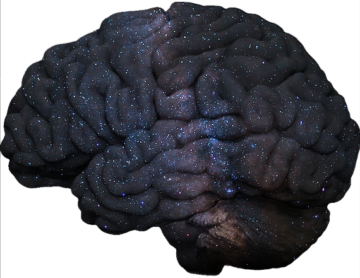by Jochen Szangolies
 In the previous column, I took Philip Goff’s latest offering Why? The Purpose of the Universe as a jumping-off point to present some of my own rumination on life, the universe, and what it all means. While that prior installment was mainly concerned with looking outward, into the wider cosmos, here, I’ll turn my gaze inward, to riff on Goff’s case that the reality of conscious experience implies a larger purpose to, well, everything.
In the previous column, I took Philip Goff’s latest offering Why? The Purpose of the Universe as a jumping-off point to present some of my own rumination on life, the universe, and what it all means. While that prior installment was mainly concerned with looking outward, into the wider cosmos, here, I’ll turn my gaze inward, to riff on Goff’s case that the reality of conscious experience implies a larger purpose to, well, everything.
Goff’s ultimate conclusion should be attractive to many: rather than being thrown by mere random chance into the cold and uncaring void of the universe, to live out a brief, confused existence and then wink out into the nothingness whence we came, the existence of complex life in the world is due to a larger purpose, an overall arc that bends into the direction of greater objective value. Moreover, rather than going the traditional route and appealing to some omniscient, omnipotent, and omnibenevolent creator God that sees to it that everything unfolds according to His divine (and commonly, unfathomable) design, he proposes a way to reap those benefits without all the boring Sunday prayer sessions!
Thus, he breaks largely untrodden ground: proposing a middle way between a scientific, materialist, but ultimately uncaring cosmos, and a world unfolding according to a divine, but irreducibly mysterious, purpose. Just as evolution can give us design without a designer, he proposes meaning without a meaner. If this were a religion, I could well see myself signing up for it—but since it’s not, I don’t even have to do that! However, as also hinted at in the last column, the more alluring the conclusion, the more we have to critically examine the arguments leading up to it. Read more »
